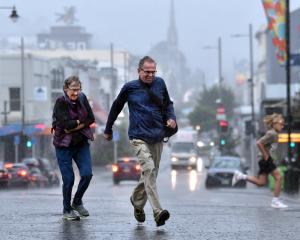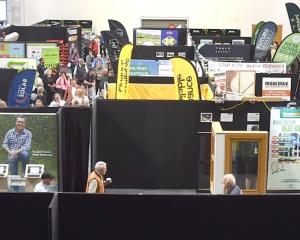In an effort to address the city's poor road-safety record, the police and partner agencies have launched a social media campaign aimed at sparking a conversation.
That campaign, dubbed Crash Hot Dunedin, was launched yesterday at the intersection of George and Frederick Sts, one of the city's worst for crashes.
Inspector Mel Aitken said while many city drivers thought they were ''awesome'', the reality was different.
''They may not indicate correctly or they change lanes poorly.
''It is all this sort of behaviour that we want people to have a think about.''
Part of the problem was that road users were ''lazy''.
''They have the attitude they can get from one side of the city to the other in 10 minutes, and it is their right to be able to do that.''
And it was not just drivers at fault. Cyclists and pedestrians also needed to improve to turn around the city's poor statistics.
The weather and the city's hills were not major factors in crashes, she said.
Asked for an example of poor driving, she said in recent weeks an officer in a high visibility vest had to jump out of the way of a young female motorist who was too engrossed in her cellphone to notice police.
Statistics showed that half of Dunedin's fatal or serious injury crashes were caused by failure to give way or poor observation at intersections.
Insp Aitken, the Dunedin Clutha Waitaki area prevention manager, urged people to brush up on the road code, do defensive driving courses and become part of the conversation on the Facebook page, Crash Hot Dunedin.
The page was not about reporting illegal activity, it was ''about raising awareness about behaviour''.
''We will be guided by the local community.
''Already we have had lots of queries about how to indicate going around a roundabout . . . so that would suggest that people have no idea.''
Police had been joined by the Dunedin City Council, the New Zealand Transport Agency, ACC and the Otago Regional Council on the project.
DCC chief executive Sue Bidrose said road safety was ''a really important focus for us all and this initiative is a great example of how key agencies and organisations can work together to try to make a difference''.
Ian Duncan, of NZTA, said the community had ''a major role in helping to make this vision a reality''.
''They can do this in various ways, even with simple actions like giving driving the respect and attention it deserves and sharing the road safely with others.''














